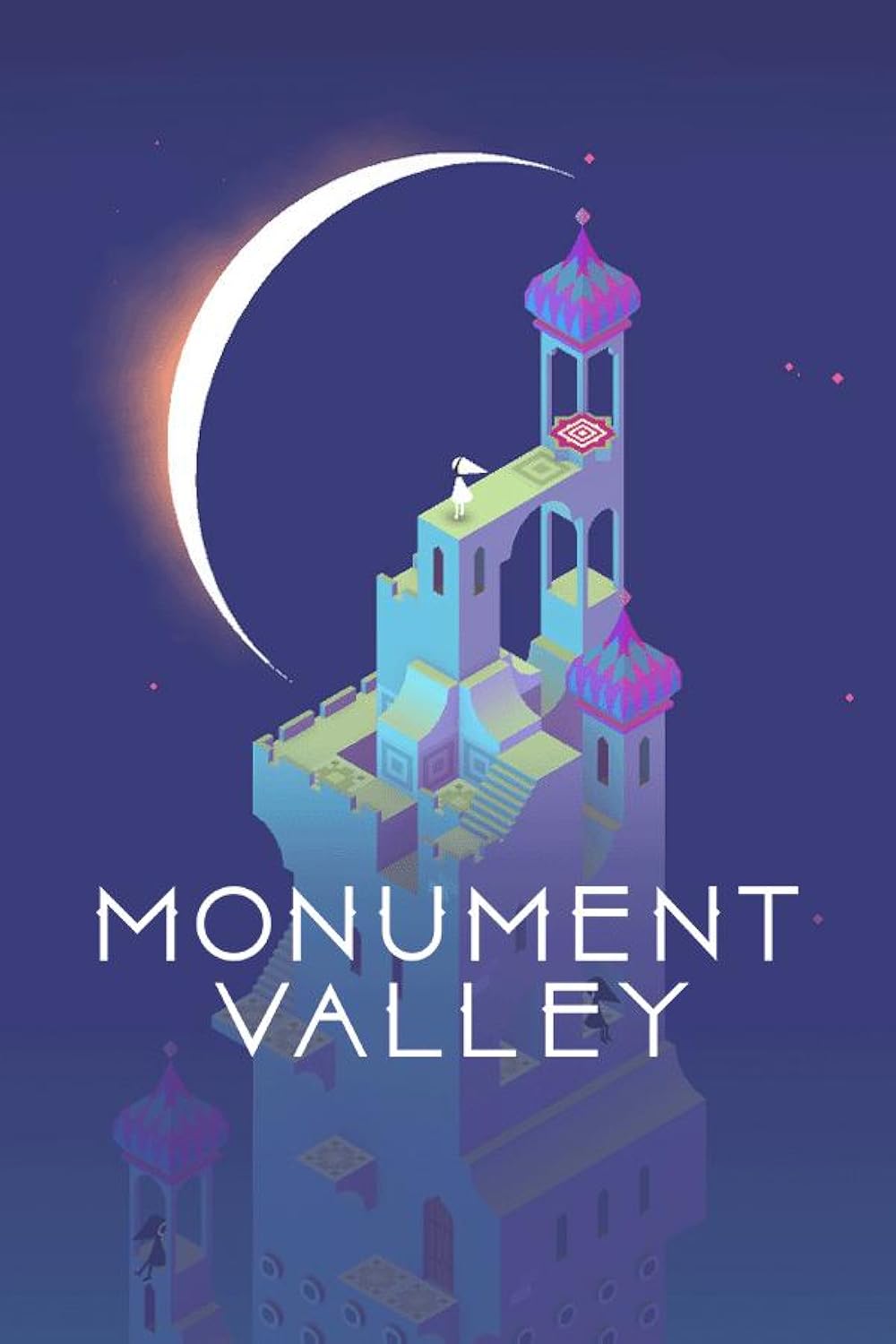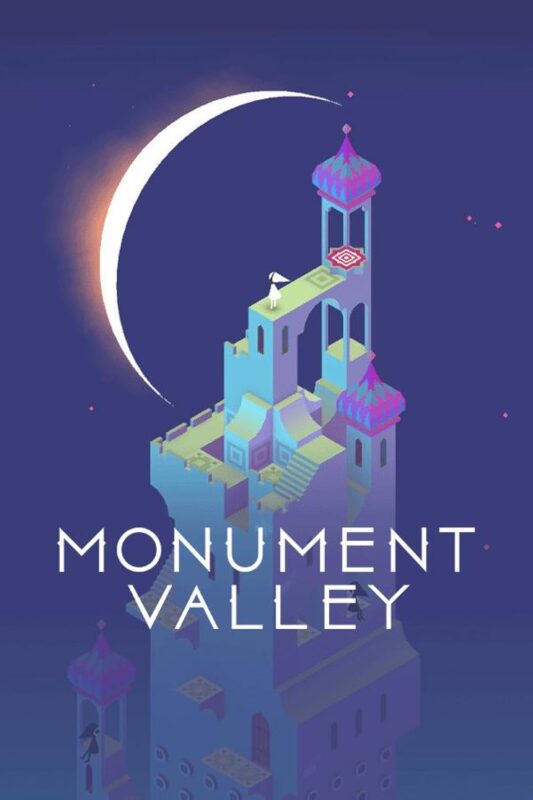

I went into Monument Valley not really knowing what to expect. I knew it was a puzzle game, but that was about it. But what I got was an absolute delight of a game.
The premise is pretty simple. Ida needs to get to the end of each level. You need to direct her where to go, and interact with movable parts of the levels to change them and make a path. The main twist is that reality is subject to optical illusions. If you can tweak something such that it looks like a usable path from your own viewpoint, then as far as Ida is concerned, it is a usable path. Think 2008’s Echochrome but Ida doesn’t move on her own.
The puzzles get harder as the game goes on, but they never get particularly hard, except for a few of the bonus stages that were originally made as DLC for the mobile version of the game. If you’re looking for serious challenge, you might find it a bit disappointing. But personally I didn’t mind. They never got super hard, but they were a lot of fun despite that, and they stayed interesting even when they were easy. Given the game’s style and aesthetic, I felt the overall difficulty made the game great for relaxing with.
On that note, Monument Valley is beautiful. It’s as much a sensory experience as a puzzling one, if not moreso. The game has a colorful but minimalist style with calming music and sounds, the likes of which were able to bring peace even to my cluttered and chaotic mind. Despite being a mobile game at heart, this is one I highly recommend playing on as big a screen as you can manage, in a dark room, and with good headphones or speakers, just to immerse yourself in it.
One thing I didn’t love as much about this game was the story. This is one of those games where the story exists primarily to support the general tone rather than to be engaging on its own. It was minimal to the point that I found myself having to look up online what it was actually about, even right after playing it. Short sequences scattered throughout the game, typically with 1-2 lines of dialogue each and little to no animation. There couldn’t have been more than a dozen or so in total. Was there even a definitive meaning behind it, or was it meant to be left up to player interpretation? I couldn’t tell, myself, but I did leave feeling that even though I didn’t dislike it, it didn’t really add much either, and the game might’ve been improved by omitting it entirely.
On the other hand, the game was also quite short. Cutting out the story would’ve made it even shorter. Leaving the player wanting more can be a good thing, but there’s a point when it almost begins to feel like an unfinished product. Even with all the additional content included in Panoramic Edition, it still felt like it was over too quickly.
Overall, I do still recommend the game. It may be short, it may be easy, but it’s a delightful time while it lasts. Monument Valley is a game about vibes, and its vibes are excellent. Enough, even, to carry it well past any shortcomings it may have.
The Good
- Beautiful audio and visuals
- Creative puzzles
The Bad
- Too short
- Undercooked story
